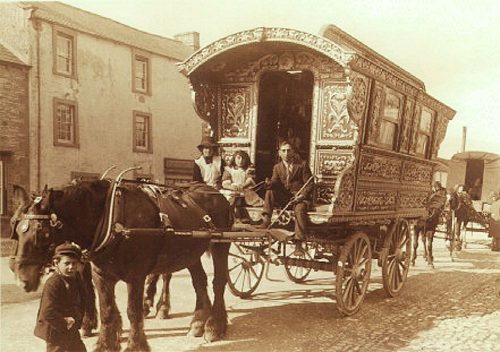
When I speak about the Roma or Romani people, many people still do not know who I am referring to: “You mean Romanians?” — a common question, to which I always have to explain, “No, not Romanians, Romani people are their own ethnic group with no physical land or country of their own.” Even after this explanation, many people are often still confused as to who I am speaking about. So usually the conversation ends with me giving up and giving in… “Gypsies.” I’ll say, frustrated and exasperated about that word being the only “recognizable” word for us to the outside world.
But what does the word “Gypsy” actually mean? Why is it the most commonly-used word for the Roma? And why do many of us Romani want the non-Roma world to stop using it?
To understand the meaning of the word “Gypsy” we must first go back to the origins of the Romani people. The Roma originated in northern India and migrated westward towards Europe in around the 11th century. When the first Romani people arrived in Eastern Europe, their dark features and foreign clothing and culture made them stand out from the Eastern Europeans and created a racial hierarchy, which lead to the Romani people becoming enslaved. The word Tsinganoi was used to describe them, meaning “slave” or “untouchable.” As the Roma travelled further westward they were incorrectly thought to be “Egyptians” by English-speaking people. The word “Gypsy” comes from both a shortening of the word “Egyptian” and a mix of different translations of the word Tsinganoi.
The word “Gypsy” in modern-day Europe (specifically, English-speaking Europe) became the most commonly used descriptor for Romani people because it was used for centuries by the majority populations in Europe to enslave the Roma and distinguish them as a separate group. In North America, the word became synonymous with the romanticized caricature of Romani people — “The mystical, wild, and free traveller.” It became known as more of an aesthetic, or “lifestyle” than a reference to a very real, existing people.
So why do many Romani want non-Roma to stop using the word “Gypsy”? Well, it should be clear enough already, but allow me to make it more clear: the word “Gypsy” comes from terms that were used to describe us as “slaves” or “untouchables” and it is a word that was put on our people by outsiders. It has also become used incorrectly by North American fashion, style, and people to describe appropriative or stereotypical aspects of Romani culture without actually referencing or accrediting the Roma.
With all this being said, there are many English-speaking Romani in the western world that have chosen to reclaim the word “Gypsy,” especially in North America and the UK (my own family has) and that is okay. But the important thing is to not default to the word “Gypsy” nor assume a Romani person or Romani people in general should be or want to be called by that term. Instead, use the term “Roma” or “Romani” and acknowledge the origins of the word “Gypsy” and how it refers to Romani people, not just an aesthetic.


